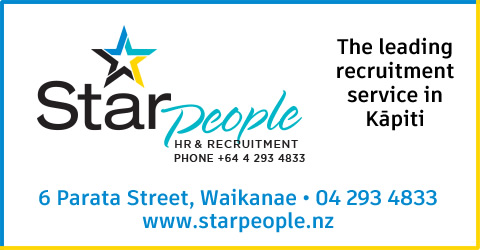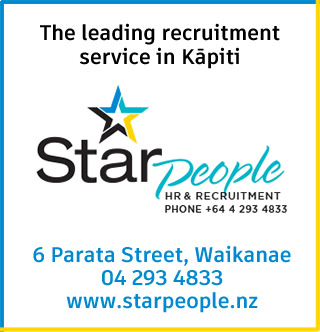An open letter to Councillors Kāpiti Coast District Council, from Paul Curry a member of Ramp Equal Access Coalition Team (REACT).
I am taking this unusual step of writing to Councillors of the Kāpiti Coast District Council (KCDC) directly as I have become deeply concerned about the acrimonious (and arguably discriminatory) approach that seems to permeate the senior staff leadership team of the KCDC with regard to their legislative responsibilities for the provision of access for people with disabilities. I have been a senior public and community servant (including as Chief Executive) for over 40 years. During all that time I have never seen or been subject to the treatment received over nearly two years from the senior staff of a Council. I make a living out of advising on governance and leadership matters, I am a fully accredited member of the Institute of Directors. I also served on, or are Chair of a number of Boards. What concerns me the most is, as KCDC Councilors, you appear to have delegated your responsibilities and your governance accountabilities to staff. Either on purpose, or by staff filling a vacuum in leadership. There appears to be a breakdown in governance responsibilities and an oversight by Councilors. I understand it is not your job to oversee operational matters (that is the role of the Chief Executive), however, according to your own code of conduct, it is your role to “monitor the performance of the Council against its strategic objectives, policies and identify community outcomes”. In addition Councilors also have responsibility for “prudent stewardship of Council resources”. One of your most important responsibilities is “to represent the interests of residents and ratepayers of the entire Kāpiti Coast District”. As Councilors you also have accountability for “ensuring overall compliance by the Council, with its obligations and responsibilities under the Local Government Act 2002, and all other legislation which prescribe statutory duties for territorial authorities.” It is very clear that the Council has fallen way short, of meeting its obligations over recent years, when it comes to its legal accountabilities of its own facilities, for access for people with disabilities. A very clear case in point has been the recent determinations by central government with regard to the Coastlands Aquatic Centre. As Councilors you failed in your duty of care to one of the most vulnerable sectors of your community. Not only that, but Council staff endeavoured to determine those people with disabilities who would have their access rights provided for and those who would not. Council staff cannot by law, make this discrimination. It is incomprehensible to me, why a group of well-meaning people (councilors), with the honor of being elected by the public, to represent their community, appears to do the reverse. Other councils around the country are doing precisely the opposite to what KCDC is doing. Rather than trying to do the very minimum possible, a number of councils are taking a proactive approach to access and are implementing processes to ensure full inclusion of all people in their communities.
I now reside in Tauranga and have the privilege of chairing the Tauranga City Council Disability Advisory Committee, this Council is working hard to make “Tauranga the most accessible and inclusive city New Zealand”. This Council has made a strong commitment to the implementation of very detailed strategies for people with disabilities and for older people. This includes comprehensive training for all Council staff, an access audit of Council facilities, and a real dedication to open, meaningful communication and consultation. It is baffling that KCDC appears not to have learned from the recent decision made by central government with regard to the aquatic centre. This is evidenced by enquiries raised about the level of disabled access at the Waikanae and Ōtaki pools at a recent Council meeting, Senior staff Pool Manager Alison Law said: “both pools were legally compliant and as aged buildings they were not required to meet the building code”. ”The only time we would need to consider upgrading the amenities to meet the current code for disability access would be if work requiring building consent was undertaken.” “work planned for the Ōtaki pool this month would not require a building consent classified as repairs and maintenance.” ”It is highly unlikely that Waikanae would ever need a building consent for any works done.” What she is really saying is that unless KCDC is required to do so by building law, KCDC will not be providing full and equal access for people with disabilities in accordance with the Building Code or the Convention on the Rights of People with Disabilities. This is not acceptable. It omits the fact that both the Human Rights Commission and Office for Disability issues fully supported KCDC’s determination, finding that the hoist and stairs did not provide ‘reasonable and adequate’ access for people with disabilities to carry out their normal day to day activities. Reasonable and adequate provision for people with disabilities is a major legal requirement under the Human Rights Act. It is also worth pointing out that the earlier Human Rights Mediation strongly ‘indicated’ the pool access provision of hoist and stairs were discriminatory under Human Rights Law regardless of Building requirements. That is why the mediation agreement solely benefitted disabled people. Suitable ramp access has been proven to be the best access provision for entry into public swimming pools, buildings and kerbsides etc. under all the various statutory obligations in the shorter and longer term. A senior staff member does not have the authority to make these decisions. This is the responsibility of you as Councilors as part of your duty as elected representatives of the community. I strongly believe there is a need for a governance and culture review to be undertaken by Councilors, to make sure that the senior staff leadership understands their roles and obligations to the Council.
It is only through a committed change of culture that we will see meaningful outcomes for community without resorting to further legal remedies. The access issues for people with disabilities to the Coastlands Aquatic Centre is only one of a number of poor judgments made by Council senior staff over recent times. Councilors need to make sure that they are fulfilling their fiduciary responsibilities by getting the best value for money, at the same time, meeting their community representative obligations under the Local Government Act 2002, Human Rights Act 1993,Building Act 2004, and administratively. As mentioned at the beginning of this letter, this is an unusual step for me to take; it was done with the best of intentions for the future of people who reside on the Kāpiti Coast. I would like to suggest that the Councilors discuss this letter in a closed session without staff present. I do not expect a response (unless you wish to), but will be watching with interest for a change in culture.
Yours sincerely
Paul J Curry
12 October 2014




























